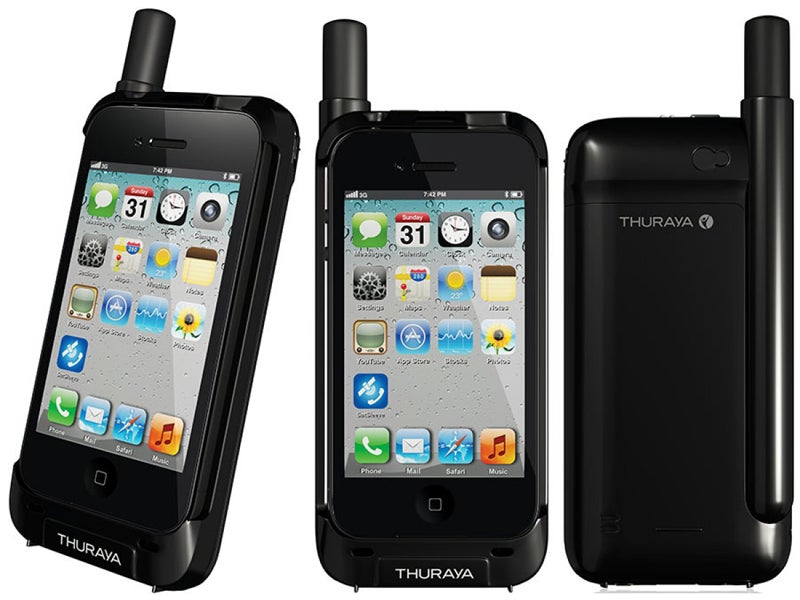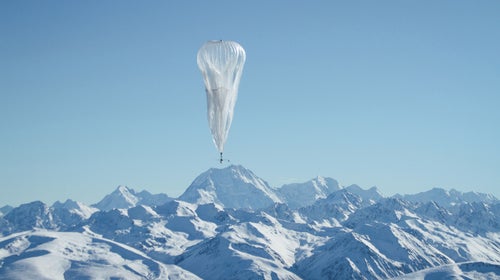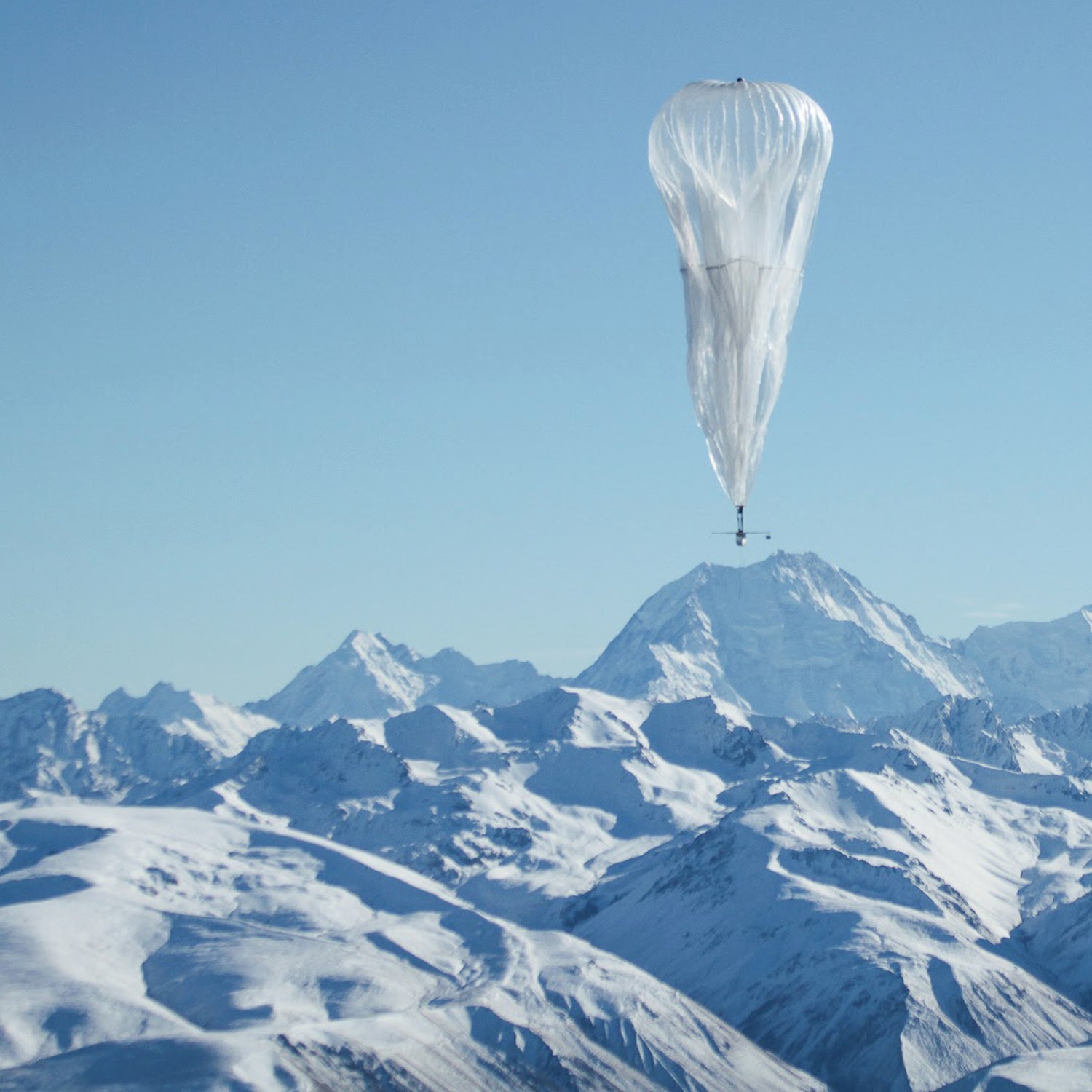Once upon a time we went into the backcountry to unplug. Constant connectivity, while obviously a boon to society in many ways, is exhausting. Your attention is pulled in a hundred directions and every few minutes you’re jostled out of your groove by another beep or buzz. And so we retreat back to nature to get away from all that and rediscover our humanity.
But here’s the thing: the Grid is expanding. Our hiding places are shrinking away, and before the decade is out, there may be no refuge left. Yes, really.
Consider: This week, a team from MIT collaborated with NASA and demonstrated technology that can . Yeah, the freakin’ Moon. The one orbiting Earth 238,000 miles away. If science can do that, you can bet that streaming Game of Thrones in the middle of Yellowstone is child’s play. And companies are already hard at work to provide such a service.
What happens to our most sacred places once the web creeps into them?
For the last year, Google has been testing an idea known as . The concept is to essentially blanket the entire planet in Wi-Fi by putting a network of solar-powered, antennae-toting weather balloons into the stratosphere. Each balloon would float for roughly 100 days, and would be steered so that the grid of connectivity is essentially gapless around the world.
On the one hand, it’s an extremely laudable goal, making the Internet (theoretically) accessible to everyone on the planet. The aid it would provide to previously unconnected locations in the arenas of education, medicine, and commerce is massive. On the other hand, what happens to our most sacred places once the web creeps into them? Yes, you’re enjoying the majesty of nature, but part of you feels like you should check your work email, just to make sure nothing is on fire. And since you have the ability to do that, isn’t it the responsible thing to do to just take a quick look?
Even if Google’s balloon project doesn’t float (sorry), this is the direction we’re headed. Earlier this year, when Ben Saunders and Tarka L’Herpiniere completed Robert Scott’s ill-fated 1,800-mile , they were dragging computers, satellite antennae, and solar panels so they could blog and upload photos and video from their tent each of the 100-plus nights they spent out there. I guess you’ve got to keep the sponsors (Intel and Land Rover) happy somehow. As satellite data speeds increase, though, you’ve got to wonder how far we are from someone live-streaming HD video while summiting Everest or K2.
Even us unsponsored Joe and Jane Schmoes out for a few days in the backcountry already have options. Last year Thuraya introduced the , which is basically a case for your iPhone that pops it onto a global satellite network with the press of a button.

And earlier this year we met the , a portable Wi-Fi network that fits in the palm of your hand and allows you to connect a whole array of devices to satellite Internet. Now, both of these services are limited in the apps you can use with them, they’re prohibitively expensive for many, and they positively crawl at early 1990’s dial-up data speeds. But the point is they’re here already, they work, and they’re only going to get better.
Obviously, there’s some good that comes with all of this. Lost in the wild? Download a map. Not sure how to treat an injury? Get medical advice. Running a couple days late because of bad weather but otherwise fine? Let your family know so they don’t freak out. Someone needs to be medevac’d? Press of a button. These are good and potentially life-saving features.
There’s a dark side, though. One of the best things about going way off the grid currently is that you just have to make that decision once, and then once you’re out there, you’re committed to it. You aren’t constantly wondering whether or not you should be checking your phone because, simply, you can’t. It’s not an option, and so you let go of those nagging voices, and you’re able to fully relax and recharge.
If, however, we lived in a world where even the most remote nooks and crannies were Internet-ready, then, “I want to check my phone. Should I check my phone?” is a decision you will have to make over and over again, even while you’re out camping in the middle of nowhere. The current lack of technology makes it easy for us to just be in the woods when we’re there, but once the capability is an option, not-checking becomes a matter of will power. And you’ll be subject not just to your own habits, but to the expectations of others. There will be no more, “Sorry boss, I’ll be off the grid next week,” because the entire planet is on the grid.
As satellite data speeds increase, you’ve got to wonder how far we are from someone live-streaming HD video while summiting Everest or K2.
Last month I did a through-hike across Zion National Park with some friends. One guy used his iPhone as his only camera, which meant it was always on him and always within reach. Sure enough, almost every time we got to a ridge he would check to see if he had bars on this phone. Occasionally he did. So while most of us stood there, jaws agape, staring at the incredible red rock canyons, he would take the opportunity to fire off a quick work email or say hi to his girlfriend. Now, his work and his girlfriend both knew he was going to be off the grid for a week and had no expectation of him checking in, but he did it anyway. Why? Because he was tempted and because he could. And every time it happened we felt him disconnect from the group, from the nature around us, and from the present moment.
Now, that is what happens today when, at best, you’re grasping for a bar or two here and there. What happens when you have consistent, quality Internet in the wild? Could you resist uploading a photo until you get back? Could you resist the siren song of your email and social networks? Well, how strong is your will?
Just because we at �����ԹϺ��� prioritize getting out and away doesn’t make us luddites. We recognize the advantages that technology brings, and how beneficial it can be in an emergency. But our stance is that emergencies are what this should be reserved for. Bring your phone, but keep it in your pack, with the power off. Think of it as a lifeline that’s there if you need it. You will be tempted. We’ll all be tempted. But remember why you’re out there in the first place.
In the near future, the only way to get off the grid will be to willfully pull the plug yourself. We hope you’ll pull it. Deep breath. It’ll all still be there when you get back.


